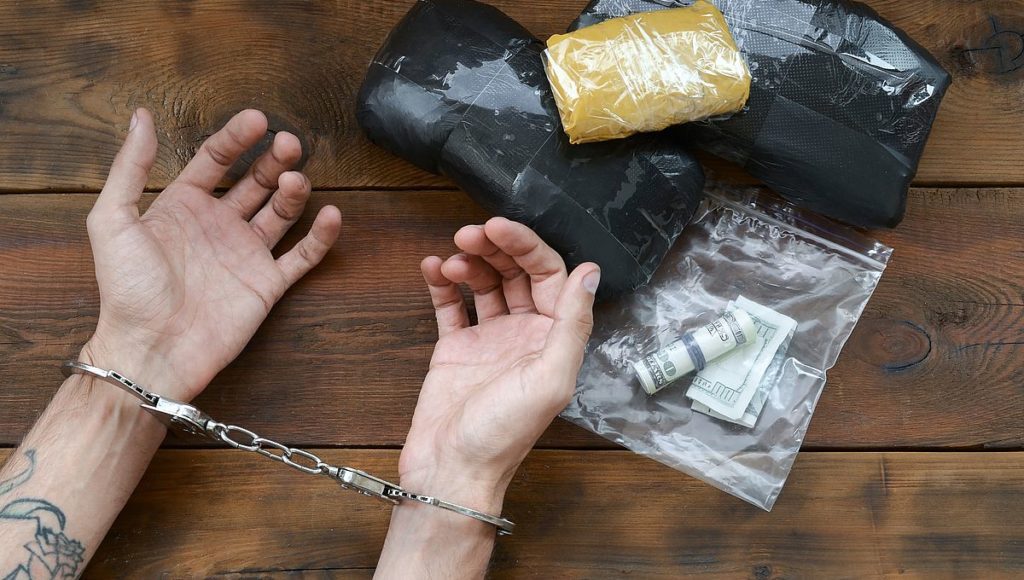Drug Trafficking & Possession Charges in Brampton, ON

Being charged with drug trafficking or drug possession in Brampton is a serious legal matter that can impact your freedom, your future, and your reputation. Whether it’s your first time dealing with the justice system or you’re facing repeat charges, you deserve a defence that treats you with dignity—and fights to protect your rights.
I’m a criminal defence lawyer who knows the Brampton court system inside and out. Over the years, I’ve defended people charged with everything from simple marijuana possession to large-scale fentanyl trafficking. No matter the scale of the charge, I know that behind every case is a real person, with a real story—and I make sure the court hears it.
What Counts as Drug Trafficking in Canada?
Drug trafficking includes selling, giving, transporting, or delivering controlled substances under the Controlled Drugs and Substances Act (CDSA). You can also be charged with trafficking if you simply offer to do any of these things, even if no drugs changed hands.
Controlled substances range from street-level drugs like cocaine, heroin, meth, and fentanyl to prescription medications such as OxyContin or Xanax. The type and quantity of drugs involved significantly affect the seriousness of your charge.
You can also be charged with possession for the purpose of trafficking, even if police didn’t actually catch you in the act of selling. For example, having large quantities of drugs, packaging materials, or cash could be enough to raise suspicion.
What Counts as Drug Possession?
Simple possession means you had a controlled substance in your custody or control—whether in your pocket, home, car, or elsewhere. Even if you didn’t know the substance was illegal, or didn’t know it was in your possession, you can still be charged.
Types of possession include:
- Personal possession: drugs found directly on you
- Constructive possession: drugs found in a place you control
- Joint possession: drugs shared with another person
Understanding Drug Schedules in Canada
Under the Controlled Drugs and Substances Act (CDSA), drugs are grouped into schedules based on their perceived danger, medical use, and potential for abuse. The schedule a drug falls into affects how seriously the court treats the offence and what penalties might apply.
Schedule I Drugs
These are considered the most dangerous. They include street drugs with a high potential for addiction and harm:
- Heroin
- Cocaine
- Fentanyl
- Methamphetamine
- Opium
Schedule II Drugs
This schedule previously covered cannabis-related substances. Since cannabis legalisation, most cannabis offences now fall under separate laws like the Cannabis Act.
Schedule III Drugs
These include hallucinogens and stimulants with lower abuse potential than Schedule I drugs:
- LSD
- Psilocybin (magic mushrooms)
- Mescalin
- MDA
Schedule IV Drugs
Often prescription medications that can be abused but also have recognized medical uses:
- Benzodiazepines (e.g., Xanax, Valium)
- Anabolic steroids
- Barbiturates
Why It Matters
The schedule of the substance plays a major role in determining bail, sentencing, and eligibility for alternative outcomes like treatment or diversion programs. For example, trafficking in Schedule I drugs like fentanyl usually carries harsher penalties than possessing a small amount of a Schedule IV substance.
Penalties for Drug Offences in Brampton
Drug offences carry some of the harshest penalties in Canadian law, particularly when trafficking is involved. Your sentence will depend on factors such as:
- The type and quantity of the drug
- Whether violence or weapons were involved
- Whether trafficking occurred near a school or playground
- Prior criminal history
Common Penalties:
- Drug Possession: Fines, probation, or up to 7 years in prison (depending on the drug)
- Trafficking: Minimum sentences starting at 1 year, with a maximum of life imprisonment for substances like fentanyl or cocaine
- Possession for the Purpose of Trafficking: Similar to trafficking penalties
- Importing/Exporting: Very severe—often life sentences if large quantities are involved
Real Scenarios Where I’ve Helped Clients
- Wrong Place, Wrong Time: A client was arrested during a raid at a friend’s house where drugs were found. We proved he had no knowledge or control over the substances.
- Addiction and Recovery: One client caught with multiple prescription pills had a documented addiction issue. We argued for treatment over jail and secured a conditional sentence.
- Mistaken Identity: Surveillance footage from a suspected drug deal falsely implicated my client. A careful review of the evidence helped clear their name.
- Unlawful Search: Police conducted a warrantless search of a vehicle. We successfully challenged the legality of the search under the Charter, resulting in the exclusion of key evidence.
Building a Strong Defence
Each case is different, but here’s how I typically defend drug trafficking and possession charges:
1. Charter Violations – If police violated your rights (e.g., no warrant, denied counsel), evidence may be excluded.
2. No Intent or Knowledge – Proving you weren’t aware of the drugs or had no intent to traffic can weaken the Crown’s case.
3. No Possession – We may argue you didn’t have physical control or knowledge of the drugs.
4. Circumstantial Evidence – If the Crown’s case relies on weak, indirect proof, we’ll challenge the assumptions made.
5. Addiction as Context – In cases of personal use, I present addiction and treatment plans to argue for reduced or alternative sentencing.
Subpages to Explore:
For more detailed legal insight, explore our subpages:
- Fentabyl Trafficking
- Marijuana License
- Prescription Drug Misuse
Each page dives deeper into specific charges, penalties, and how I defend clients facing them.
Why Choose Me as Your Drug Defence Lawyer?
- Results-Oriented: I don’t take on more clients than I can manage. Each case gets personal attention.
- Community Focused: I understand the impact criminal charges have in a close-knit city like Brampton.
- Straight Talk: I’ll explain your case clearly—no legal jargon, no false promises.
- Courtroom Experience: With over 30 years in criminal law, I know how to challenge prosecutors and protect your rights.
FAQ: Drug Trafficking and Possession Charges in Brampton
What’s the difference between drug trafficking and possession?
Can I go to jail for having a small amount of drugs?
Is it illegal to share prescription drugs?
Can drug charges affect immigration?
What if I didn’t know the drugs were in my car or bag?
How do I fight these charges?
Don’t Wait - Call Now
Time is critical. If you or someone you care about is facing drug trafficking or possession charges in Brampton, get legal help now. Let’s talk. Let’s fight. Let’s protect your future.

